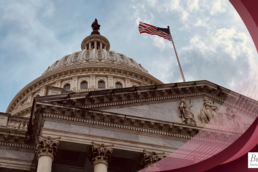Sunday night, President Trump issued a new executive order indefinitely banning almost all travel to the United States from seven countries, including most of the nations covered by his original travel ban and adding North Korea, Chad and Venezuela. Sudan has been dropped from the list. The new order cites threats to national security posed by letting their citizens into the United States.
The new order, which will take effect on October 18, imposes a permanent ban on travel, rather than the 90-day suspension that President Trump authorized soon after taking office. Officials say his new action was the result of a deliberative, rigorous examination of security risks designed to avoid the chaotic rollout of his first ban. The addition of non-Muslim countries could address the legal attacks on earlier travel restrictions as discrimination based on religion.
Beginning next month, most citizens of Iran, Libya, Syria, Yemen, Somalia, Chad and North Korea will be banned from entering the U.S. Citizens of Iraq and some groups of people in Venezuela who seek to visit the U.S. will face restrictions or heightened scrutiny.
The original ban caused turmoil at airports in January and set off a furious legal challenge to the president’s authority. It was followed in March by a revised ban which expired on Sunday, even as the Supreme Court is set to hear arguments about its constitutionality on October 10.
Officials describe the new order as a much more targeted effort than the earlier one. Each of the countries will be under its own set of travel restrictions, though in most cases citizens of the countries will be unable to emigrate to the United States permanently and most will be barred from coming to work, study or vacation in the U.S.
Iran, for example, will still be able to send its citizens on student exchanges, though such visitors will be subject to enhanced screening. Certain government officials of Venezuela and their families will be barred from visiting the United States. Somalis will no longer be allowed to emigrate to the United States, but may visit with extra screening.
Officials say that the new rules would not apply to legal permanent residents of the United States and that visitors who currently hold valid visas from the countries listed will not have their visas revoked. This means that students already in the United States can finish their studies and employees of businesses in the United States who are from the targeted countries may stay for as long as their existing visas remain valid. People whose visas expire will be subject to the travel ban.
People seeking access to the United States as refugees are not covered by the proclamation. Entry of refugees is currently limited by the president’s original travel ban and officials say the administration is preparing new rules for refugees that should be announced within days.
Berardi Immigration Law is committed to providing our clients with the most accurate and up-to-date information possible. Be sure to check back for more news updates.
Ready to have Berardi on your side?
Whether you’re a business looking to hire or a professional hoping to relocate, immigration law can be complicated. But you don’t have to do it alone. Put our experience to work for you.



